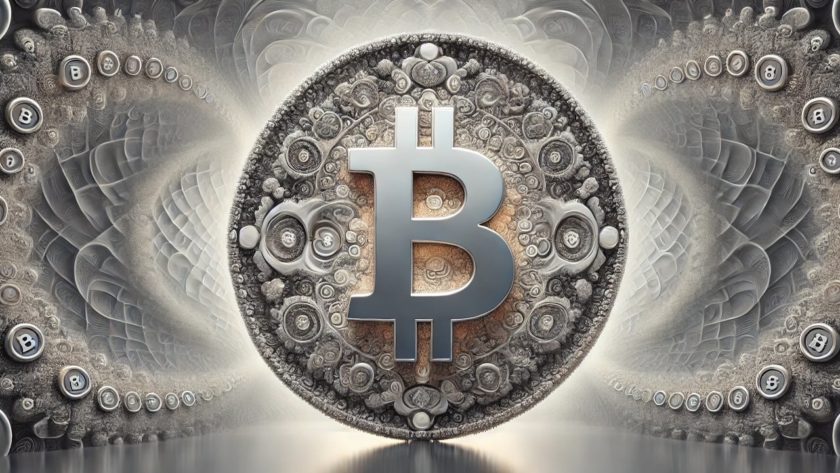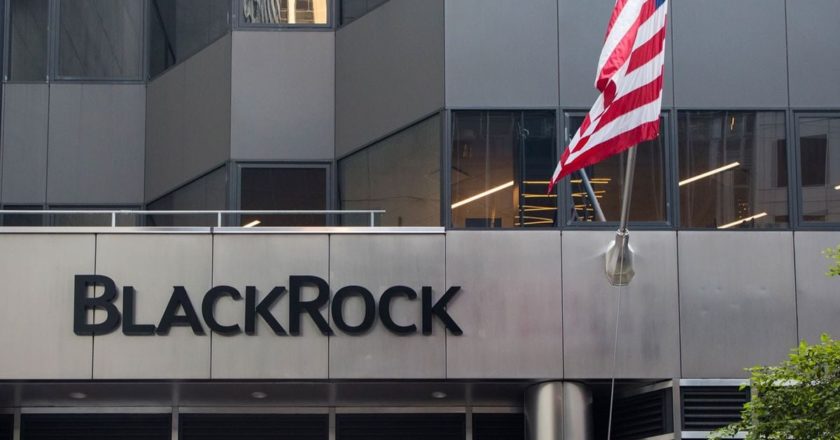The price of bitcoin traded between the $6,800 to $6,400 range throughout the week, suggesting that this year’s bottom may have finally been found and that the $6,000 mark should remain a strong resistance line. Bitcoin closed the week effectively unchanged.
Major market-moving news was scarce this week, but bitcoin adoption-positive headlines were made in the past seven days. Coinbase announced the addition of new assets as well as investable “coin bundles” and learning materials to boost cryptocurrency adoption and investment. Moreover, cryptocurrency broker, Voyager, has joined forces with Ethos to enable fiat-to-crypto purchases for both retail and institutional clients while Swiss startup SEBA raised $103 million to build a crypto bank.
Bitmain’s reported $2.8 billion in revenue brought attention back towards its IPO and helped to boost the price of bitcoin cash (BCH) as Bitmain is one of the largest BCH holders in the market, according to recent IPO filing documents.
Moreover, the Mt.Gox trustee, nicknamed the “Tokyo Whale,” announced that he had sold over $230 million worth of bitcoin and bitcoin cash. According to data by Cryptoground, Mt.Gox still holds 137,891 BTC and BCH, worth almost $1 billion, which are yet to hit the market.
The altcoin market had a mixed week, with some winners and some losers. Bitcoin cash gained ten percent, and Bitcoin Gold gained 15 percent week-on-week, while the remainder of the altcoin market struggled. Ether, which had an excellent run last week, closed the week four percent lower despite positive news for Ethereum from Ledger X and Fundstrat.
The cryptocurrency derivatives exchange LedgerX announced that it plans to add ether derivatives soon while Fundstrat’s head strategist, Tom Lee, told CNBC that the cryptocurrency is set for a big comeback.
Priyeshu Garg and Pratik Makadiya have provided this week’s contributions.
Bitmain Technologies Ltd., the world’s largest cryptocurrency mining company, filed a preliminary IPO prospectus with the Hong Kong Stock Exchange (HKEX), disclosing revenues of $2.8 billion in the first half of 2018, Business Insider India reported on September 26, 2018.
The Wall Street Journal reported that Bitmain’s financial statements, which were released in a 438-page filing with the Hong Kong stock exchange, confirmed Bitmain’s intention to go public. The deal could, according to analysts and investors familiar with the matter, raise billions of dollars and place the crypto mining giant on par with some of the largest companies in the world.
The company’s preliminary IPO prospectus was filed with the Hong Kong Stock Exchange on September 26, and in it, Bitmain disclosed that it had revenues of $2.8 billion in the six months leading to June 2018.
The trustee liquidating cryptocurrencies on behalf of the now-defunct exchange Mt. Gox has offloaded another 25.98 billion yen, or around $230 million, of Bitcoin and Bitcoin Cash, Bloomberg reported on September 25.
Mt. Gox’s bankruptcy trustee, Japanese lawyer Nobuaki Kobayashi, better known as the “Tokyo Whale” in cryptocurrency circles, offloaded 25.98 billion yen ($230 million) worth of Bitcoin (BTC) and Bitcoin Cash (BCH) on behalf of the exchange.
According to Bloomberg, the disposals have been incrementally made since the tenth creditors meeting was held on March 7, 2018. Kobayashi disposed of cryptocurrencies worth roughly 42 billion Japanese yen (~$372,204) at that time made up of 35,841.00701 BTC and 34,008.00701 BCH.
Ether, the second largest cryptocurrency in the world by market cap, could soon be available on the LedgerX cryptocurrency derivatives platform.
According to a September 24 report from The Block, the crypto trading platform known for its bitcoin swaps and options has an options product tied to ether ready to go live. Citing a source familiar with the company’s business, LedgerX is currently waiting for regulators from the Commodities Futures and Trading Commission (CFTC) to get comfortable with the product before making it available to its clients.
And while the company is yet to comment on the news, the report cites a source familiar with the company who says that the rollout could follow a CFTC meeting on October 5, 2018, if regulators at the agency are sufficiently comfortable with the product.
LedgerX began offering bitcoin derivatives in October 2017, just two months before both CBOE and CME launched their bitcoin futures contracts. The company currently offers next-day swaps and options.
Next-day swaps are one-day futures contracts settled in “physical” bitcoin, while options enable traders to purchase the right to buy or sell an asset at a particular price at an agreed-upon point in the future.
According to the Crypto Valley Association (CVA), there are approximately 530 blockchain startups spread in Zurich, Zug, and the Crypto Valley hub. These companies, like any other, require access to the traditional banking system to transact effectively.
They need to deposit cash, pay their current and long-term obligations, and carry out the financing activities that arise from their day-to-day operations. Until the recent development, Swiss banks have been giving crypto businesses a wide berth for fear of flouting the anti-money laundering rules in place.
In a bid to enhance the attractiveness of Switzerland as a financial hub, SBA has embarked on several initiatives to promote and support innovation in the digitization space. This includes blockchain technology. SBA acknowledges the risks and skepticism around the technology. In their latest move, however, they are focused on bringing cryptocurrency guidelines at par with the legal framework guiding traditional banks.
With the guidelines in effect, processes such as the opening of accounts for blockchain companies are simpler and less risky.
Zebpay informed its users stating the company will stop operating as an exchange. However, they reassured users that the pending orders and credit amount would be automatically stored to Zebpay wallet and no more new orders will be accepted.
India’s leading crypto company also noted that they are not able to carry on the exchange in the country due to “regulations and banking problems.” However, the users will be able to access the Zebpay wallet after the exchange stops. Launched in 2015, one of the largest cryptocurrency exchanges in India, Zebpay, wrote to its users:
“The curb on bank accounts has crippled our, and our customer’s, ability to transact business meaningfully. At this point, we are unable to find a reasonable way to conduct the cryptocurrency exchange business. As a result, we are stopping our exchange activities. At 4 p.m. today (28 September 2018), we will cancel all unexecuted crypto-to-crypto orders and credit your coins/tokens back to your Zebpay wallet. No new orders will be accepted until further notice.”
On September 27, 2018, the powerhouse exchange Coinbase announced the launch of Coinbase Bundle, one of the many new projects in their financial arsenal. As per its announcement on Medium, the exchange wanted to instill confidence in users (new or old) when dealing with cryptocurrency trading.
Coinbase’s approach to educating the masses on the cryptocurrency is simple and straightforward. The Bundle offered by the exchange contains all five cryptocurrencies listed on the exchange, namely, Bitcoin, Bitcoin Cash, Litecoin, Ethereum, and Ethereum Classic.
Users can decide on how much of any of the listed cryptocurrencies they wish to hold. The exchange will calculate a “diversified portfolio of available cryptocurrencies,” depending on the current market cap at the time the user places an order.
Interestingly, the Bundles start at $25 and gives users the chance to own grouped cryptocurrencies as per their discretion. Following the purchase of the bundle, the assets in question are distributed in their respective wallets and behave similarly to independent tokens in a user’s digital wallet. This means that cryptocurrencies can be traded independently thereafter.
Digital currency exchange Coinbase has announced several fundamental changes that will revamp its policy for listing new cryptocurrencies.
Announced in a September 25 Medium press release, the new system will allow almost anyone to submit a cryptocurrency through an online evaluation form under the company’s digital asset framework. The application form and the digital asset framework will be regularly updated, and the form will mirror the latest version of the framework Coinbase is evaluating against.
The press release stated that users looking to list cryptocurrencies under the new policy wouldn’t have to pay an application fee, but the company reserved the right to impose one in case the company needs to cover the legal and operational costs related to assessing and listing new assets.
According to Coinbase CTO Balaji Srinivasan, the future application fee will be used to deter spam, and the listing fee will be used to cover due diligence. However, the new process refers only to digital assets that are compliant with the local law, which means that certain assets listed on the platform may only be available to customers in particular jurisdictions.
Category: Altcoins, Bitcoin, Blockchain, Ethereum, Exchange, Finance, News, News Digest
Tags: adoption, altcoin news, banking, bitcoin news, blockchain technology, Coinbase, Ethereum




